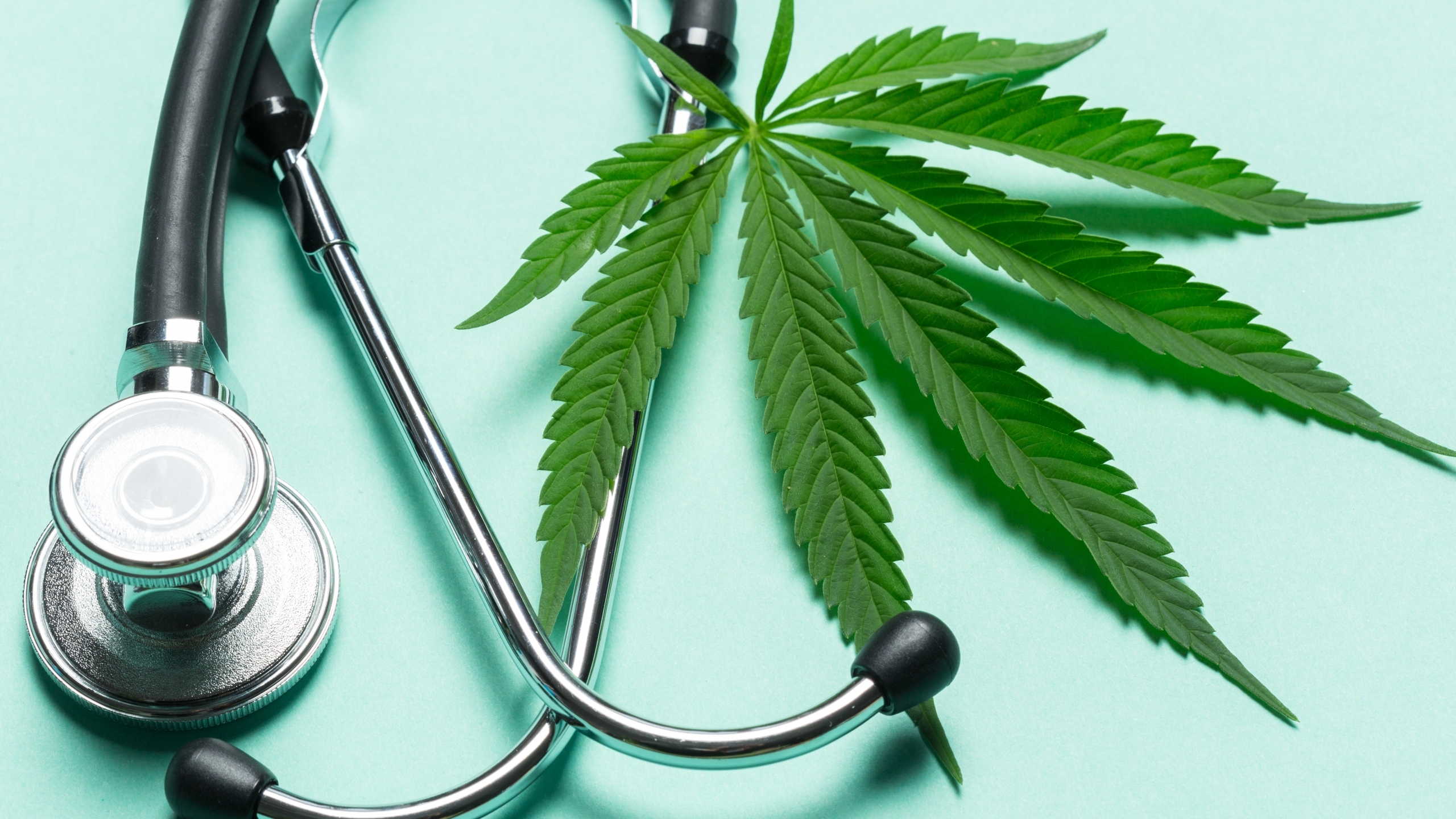The Alabama House Judiciary Committee on Wednesday held a public hearing on legislation that would allow a doctor to prescribe medical marijuana to a person with a certified medical need.
Senate Bill 46 is sponsored by state Sen. Tim Melson, R-Florence, who has carried medical marijuana legislation for three years in a row. All three years, his bill has been approved by the Senate, but to this point, his legislation has never gotten out of committee in the Alabama House.
Melson said that SB46 has comparable tax rates to other states that have only medical cannabis. The bill requires that a patient have a qualifying condition, Melson said. Melson explained that the Alabama Cannabis Commission will not have the authority to add qualifying medical conditions. An earlier version of the bill had that, but it was taken out. Only the Legislature can add a new qualifying medical condition.
“There is literature to back that, that shows that it helps with these qualifying medical conditions,” Melson said.
Melson said he is not in favor of recreational marijuana legalization, adding: “This is not an attempt to be a lead-in for recreational.”
Melson, an anesthesiologist who has worked for many years doing medical research, said that the reason that there are not qualified medical studies in order to get FDA approval for marijuana is that the patent process is closed off to marijuana.
The bill prohibits smokable, raw and vaping products, Melson said: “Vaping has been getting a bad rap lately, it is deserving a bad rap. I think we are going to see problems worse than tobacco from vaping.”
Melson said that his bill also allows a cannabis suppository for those patients, such as someone on chemotherapy, who can’t swallow.
Melson said that there would be no sugar coating, the packaging must be tamper-proof and no advertising will be allowed by doctors. The persons appointed to the commission have to have certain qualifications. They cannot be in the business. ALEA is willing to do the testing. The dispensaries are allowed to have just small signs. There will be seed-to-sales statewide tracking. The license is not transferable.
“I tried to work with the pharmacies, but they are not allowed to be in this because [it is a] Schedule I drug,” Melson explained. Melson said that the federal de-scheduling of marijuana “is probably coming.” This allows the state to have a regulatory structure in place prior to that.
Former Sen. Phil Williams, R-Rainbow City, with the Alabama Policy Institute, spoke in opposition to the bill.
“If this were the aspirin bill, I would still have problems with the bill because of how it is structured,” said Williams. “It violates civil liberties, preempts federal law, violates free-market principles, grows government. It creates an eleven-member commission [and] does not cap the employees.”
“It raises taxes at unheard-of levels,” Williams said. “We do not tax medicine in this state, and if we did, the state sales tax is 4 percent. This is 9 percent and more if state and local taxes are charged.”
“We are setting a burden on people we say we are trying to help,” Williams charged.
Williams said that investigators with the Alabama Medical Cannabis Commission are empowered to do warrantless search and seizure on licensed farms, processors and dispensaries.
Chey Garrigan with the Alabama Cannabis Industry Association said: “We are right in the middle of all of these other states allowing medical cannabis. Florida allows recreations. People are setting up businesses just across state lines at our border.”
“We need to set up some type of regulation to make sure that things are done properly and in the best interests of the patients,” Garrigan said. “The farming community has taken a serious interest in hemp and many of the hemp growers would also like to grow medical cannabis. Growing it and selling it here in Alabama keeps those dollars here with Alabama farmers and the state of Alabama.”
Dr. Marsha Raulerson, a pediatrician in Brewton and the former chair of the Alabama Medical Association, said: “Medical marijuana is not medicine,” charging that it interferes with judgment, concentration, reaction time and coordination. It is the most prevalent drug detected in motor vehicle accidents, he said.
“Marijuana interferes with brain functions, such as memory, attention, and problem solving,” Raulerson said. “Marijuana use in teens has resulted in lower grade point averages and in an increase in school and college dropouts.”
“Marijuana can be addictive,” he continued. “According to the CDC, about 1 in 10 marijuana users will become addicted. That number rises to 1 in 6 for users younger than 18.”
Amanda Taylor, who told the committee that she has six debilitating diseases including muscular sclerosis, said she is “a medical refugee.”
“One of those diseases caused me to have flu-like symptoms,” Taylor said. “I kept fighting it and lost down to 99 pounds. I fought cancer at 25 and successfully fought it. I have done everything medically possible. I started CBD oil and saw a little bit of improvement.”
After researching the health benefits of cannabis, Taylor moved to Scottsdale, Arizona, and became a legal medical marijuana patient. There she gained her weight back and got her health back. She eventually went to work for the industry and now works for a hemp producer in Cullman.
“It is not right for Alabamians to not have the compassion that they have found in 36 other states that have legalized medical cannabis,” Taylor said.
Dr. Susan Ashby, a pediatrician in Mobile County, said has “seen the psychosis from overuse and withdrawal.’”
If this is used in households, it will be available to children and adolescents, Ashby said.
“Children will get into their parents’ medication. It is going to happen,” she said. “The edibles are particularly a problem because they are packaging this in a form that is attractive to children. Even if it tastes bitter, children will take anything with Scooby-Doo on the packaging.”
“We are for compassionate use with a rare form of epilepsy and for cancer use,” Ashby said.
“We need to go through the same process as every drug for approval by the FDA,” Raulerson said. “The legalization of marijuana in Colorado had made a lot of people sicker just like tobacco did and just like oxycontin did.”
Rep. Chris England, D-Tuscaloosa, said: “A lot of the arguments that I am hearing today I also heard against CBD oil.”
“Our regulations encourage illegal use of these substances,” England said. “We will eventually realize that the substance used properly can actually be helpful.”
Raulerson said: “I believe that medicine has to be a scientific process where medication is actually studied.”
“We have to have a bill like this passed to move forward,” England said.
Melson said to the two doctors, “You are talking about recreational, not medical.”
“There have been plenty of trials out there,” Melson said. “Yes, we are going to grow government, but we are going to take care of patients and do that safely.”
Melson said that packaging is going to be restricted and there will be no Scooby-Doo on any medical marijuana packaging in Alabama.
“We are not talking about any raw plant material,” Melson said.
Melson said that given the restrictions on the dosages you would have to take a lot of the medical marijuana at one time to get the buzz of recreational marijuana.
“It is not worth it. You’re going to pay more for it than you can buy it off the street in Birmingham for,” he said.
Rep. Tim Wadsworth, R-Arley, said, “I am on the fence on it. My goal is to tighten it up so that we don’t have the same problems as some of these states that have recreational marijuana.”
England said, “If you want to use marijuana (to get high), you are going to smoke it.”
Rep. Jim Hill, R-Odenville, who chairs the House Judiciary Committee, said that the committee will vote on whether to advance the legislation on Wednesday, March 10. Amendments, if any, will be accepted then.













































